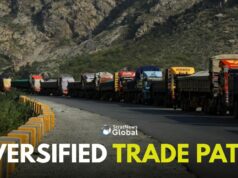Germany reintroduced temporary controls on its western and northern borders on Monday as part of efforts to combat irregular migration and cross-border crime, the interior ministry said.
Restrictions to Tackle Irregular Migration
The restrictions are part of a series of measures Germany has taken to toughen its stance on irregular migration following a surge in arrivals, in particular people fleeing war and poverty in the Middle East, and a rise in support for the opposition far-right and conservatives.
The checks will now be implemented at Germany’s land borders with France, Belgium, Luxembourg, the Netherlands, and Denmark for an initial period of six months, marking a further setback to free movement within the European Union. Similar checks are already in effect at the borders with Poland, the Czech Republic, Austria, and Switzerland.
Federal police will conduct these controls flexibly, basing their actions on the current security situation and focusing on minimising disruption to commuters, travellers and trade, the ministry said.
Traffic was flowing freely at borders on Monday. Travellers are advised by the ministry to carry valid identification, and non-EU citizens should have their entry documents, including visas, ready for checks.
The changes come against a backdrop of declining asylum applications in Germany, which fell by 21.7% in the first eight months of the year.
Interior Minister Nancy Faeser said the numbers had fallen, thanks in part to controls introduced last year, which blocked over 30,000 unauthorized entries.
“That is why we will expand our temporary border control to include all of Germany’s land borders, as I ordered today,” she said in a statement.
“My order is also intended to protect against the acute threat of Islamist extremist terrorism and serious cross-border crime,” she added.
Criticism From Neighbours
The measures have prompted criticism from Germany’s neighbours. Polish Prime Minister Donald Tusk has called for urgent consultations with other affected countries which fear having to absorb more asylum seekers and the impact on trade.
Austria’s Chancellor Karl Nehammer warned that if Germany introduced measures to send more immigrants back across their shared border, Austria would reciprocate by sending more people eastward towards the Balkans.
Border checks with Austria are scheduled to run until Nov. 11, 2024. Similarly, inspections at the borders with Poland, the Czech Republic, and Switzerland are planned to continue until Dec. 15, 2024.
Germany’s Interior Ministry has implied that there will likely be further extensions.
(With input from Reuters)




